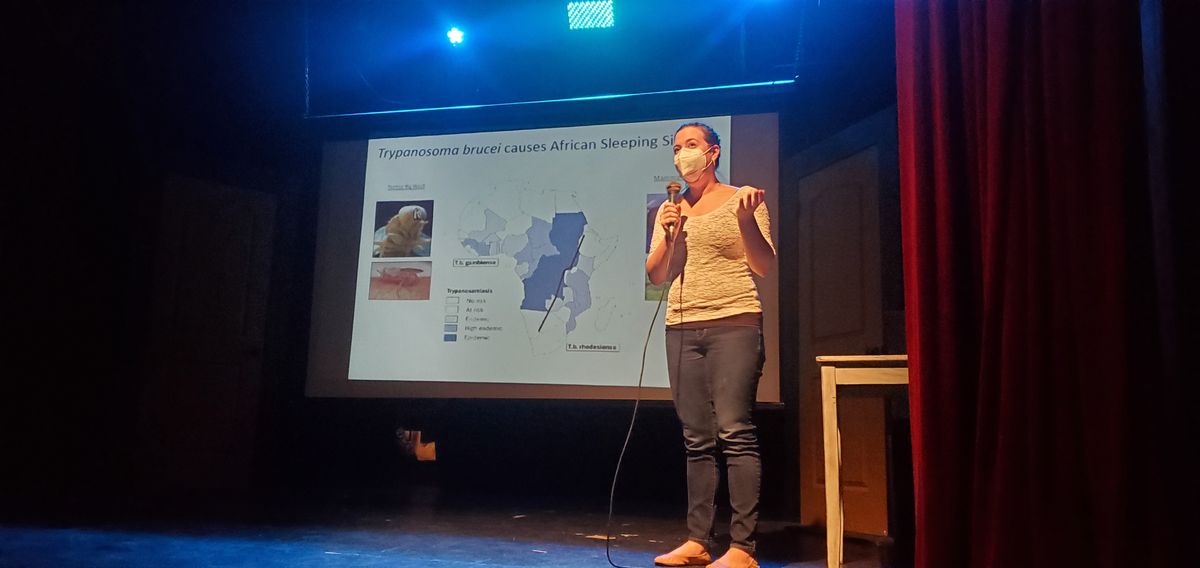When I think about science, I often find myself imagining abstract images of test tubes holding colorful liquids or gigantic telescopes looking deep into the past. Serious, rigorous, and methodical are some of the words that spring to mind. But comedy? That one definitely seems like an outlier.
Recently, I had breakfast with a friend who is a talented actor and comedian when she mentioned that two of her friends had started a comedy show about science. Every month in a small theater in Hollywood, scientists get up onstage to give short talks about their research and then don a costume or two to perform a comedy sketch about their science.
In a recent show, she explained how a climate scientist used humor to explain the evidence of climate change and the urgent need for a response to it. Knowing my love of breaking down tough scientific topics and that I will happily talk about parasites to anyone who will listen, she suggested that I might have fun giving science comedy a try.
Soon enough I found myself on a video call with the two comedy writers, Ryder and Gabe. They explained how they both have a science background — Ryder in aerospace engineering and Gabe in geology — but they had recently moved to Los Angeles to pursue comedy. This show was a way to marry their interests.

As I explained my PhD research on African trypanosomes, Ryder and Gabe jotted down notes, interjecting with questions here and there. Ryder asked me how trypanosomes avoid getting killed by the immune system, and I told him about the parasite’s ability to swap the main protein on its cell surface for a different one, a process called antigenic variation.
“I know what we could do with that!” Gabe said. “We could do a heist scene.” Just imagining parasites getting caught pilfering jewels from a museum and switching their disguises right before getting caught already had me giggling.
As we bounced different ideas around, I realized that comedy is a great way to communicate science. The complexity of antigenic variation can be explained with someone swapping a chef’s hat for a beret. Trypanosome social behavior can be transformed into a scene about friend groups in a high school cafeteria. How trypanosomes navigate through different tissues in their hosts can be likened to Hercules' hero’s journey in Greek Mythology.
By giving people a reason to laugh, comedy injects an extra dose of fun into science. What better emotion to correlate with science than joy? While I am by no means a comedian, the process of thinking about how I can make difficult to understand scientific concepts funny will make me a better science communicator.
When I get up onstage in a couple of weeks, I’m excited for people to have fun while learning a little more about the crazy but fascinating biology of parasites at the same time.
In the video below, Stephanie performs as Hercules confronting the three Fates, played by Joy Mamey, Gabe Valdez, and Ryder Tam, to complete his trials to become a god. Video credit: John DeMarco



